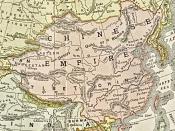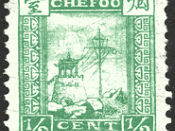Ross Johnson
EH 1st Semester Final
Throughout the history of China, there have been many distinct classes; although complex relationships existed amongst different classes, there has always been a defined hierarchy that separates each class from the others. In dynastic China, although the possibility existed, rarely did masses of people change classes or interact with those of a higher class on a regular basis. Only in modern times, with the help of contemporary film and literature, along with communist influence, and several revolutions has this system been able to change as much as it has. In recent years, the lightening of political censorship in China, along with the releases of new literature, some of which concentrates directly on the subject of socialism's classless society, more and more people have awakened to the class distinctions and relationships and their affect on the rising amount of capitalistic attributes of the society that exist in present day China.
During the Qing Dynasty, classes remained segregated, as they had been for much of the dynastic control of China, a dilemma that may have contributed to the popularity of communist ideals. Civil service examinations were still heavily relied upon , so to some extent, people were able to change classes, although most of the poorer class didn't have access to the test preparation schools that the wealthy did. This remained the prominent path to a higher class in the Qing society. Additionally, the Qing dynasty kept the Forbidden City forbidden to outsiders, with the exception to Jesuit priests (WH 533. This was a major separation of the imperial court from the rest of the society, and kept those who weren't accepted by the emperor at a distance. Thirdly, the fact that the imperial court had large landholdings that backed their estate played a large role...


